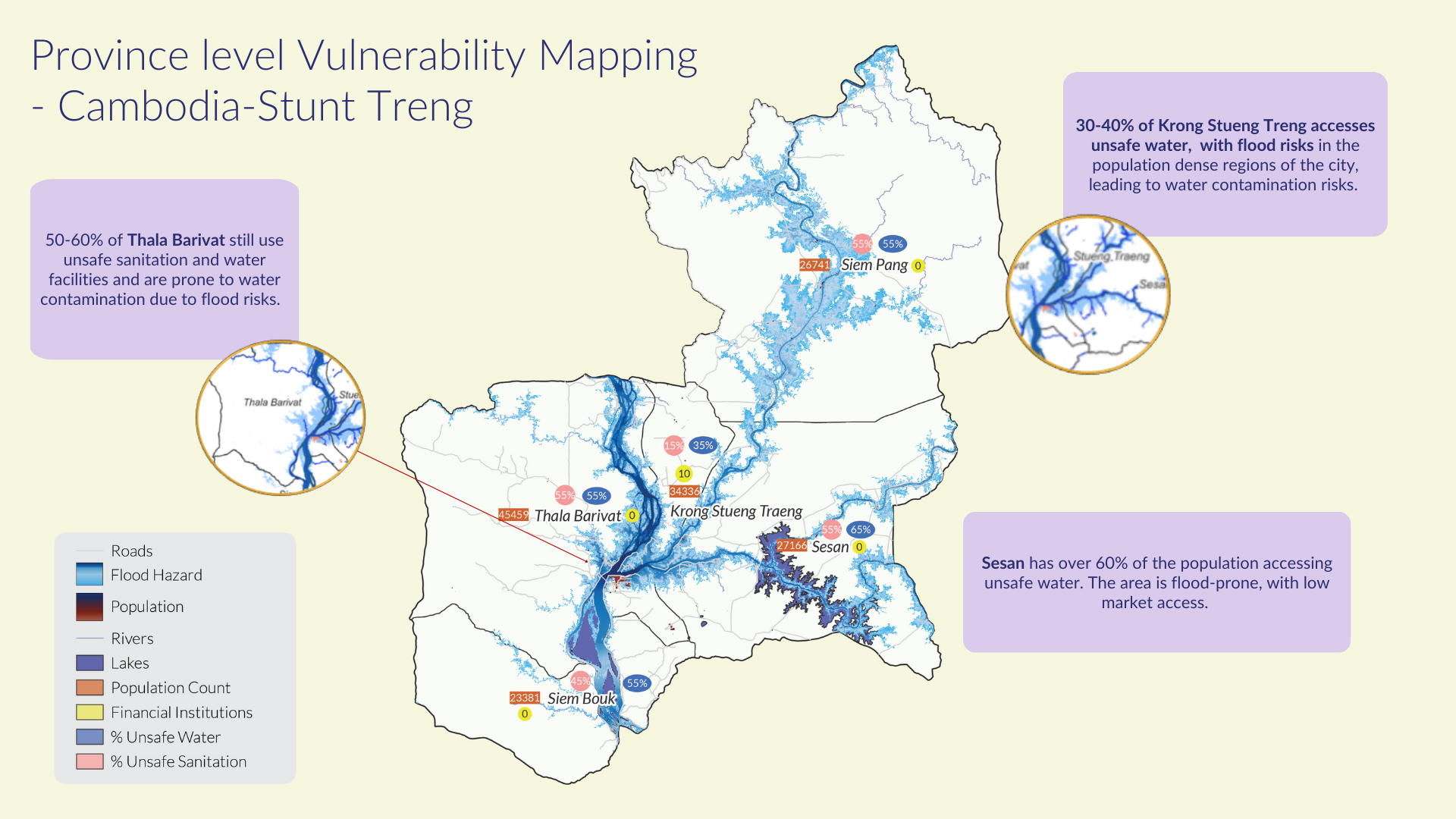Overview of the Challenge
Across Southeast Asia, the WSS sector grapples with aging infrastructure, fragmented service delivery, and low rates of safe desludging. Climate events regularly damage facilities, while women and low-income households carry the heaviest burden. With households already spending 4% of their income on WSS, above affordability thresholds in Cambodia, financing solutions are urgently needed.
The Ask
Water.org needed to identify where and how to deploy its WaterCredit program in Cambodia to strengthen WSS access. Specifically, the ask was to map climate and service vulnerabilities, estimate household demand and market size for WASH loans, and recommend both district-level interventions and systemic national reforms.
What We Did
Athena Infonomics and Water.org identified Battambang, Siem Reap, and Stung Treng as priority provinces and further vulnerable districts under each of them. Stakeholder consultations, Household surveys and geospatial analysis highlighted climate-driven contamination, unsafe sanitation practices, and financial exclusion. Importantly, the study revealed low awareness of financial products (8%) and a lack of affordable credit for households and small providers (6%).


What to Expect
Recommendations focused on targeted WaterCredit loans for sanitation upgrades, desludging, and water treatment, paired with financial literacy campaigns. Nationally, systemic reforms—PPP frameworks, tariff restructuring, and climate-resilient financing, were proposed to build a stronger enabling environment.
For more details on the project, read.
Access the full learning brief!
